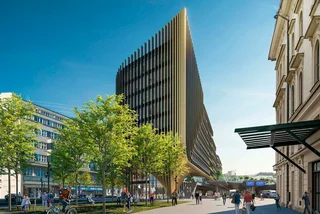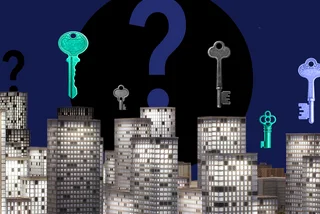Czechia is known for its Kafkaesque bureaucracy, but for people wanting to build a house that is likely to soon change. The lower house of parliament recently approved an amendment to the construction law that will reduce the entire process to 30 days in most cases, which proponents of the bill say will help to ease the housing crisis.
If Senate passes it as well and it is signed by the president, it will be fully effective from July 2024, and for some types of construction as early as Jan. 1, 2024.
PARTNER ARTICLE
Czechia has long had a problem with its construction approval process sometimes stretching out for years. By the time approval is received, the projects may already have outdated elements that can’t be changed significantly. The difficulties in getting a building permit have often been criticized by both developers and municipal officials as a key cause of the country’s housing crisis.
Permits will be made in a single step
The goal of the amendment is to create a simplified system based on the principal of "one office, one procedure, one stamp." There will now be one permit procedure with one appeal procedure with fixed deadlines. It will be overseen by local building authorities.
For the construction of most buildings including residential properties, people should be able to get a building permit in 30 days. More complex projects such as power plants and highways should get approval within 120 days.
Another new law will allow the building offices to also handle the environmental impact process, so a separate procedure will no longer be needed. This will enable the permit process to remain with one step. That law takes effect Jan. 1, 2024.
"I believe that the amendment will lead to the stabilization and improvement of the entire construction sector, as the Construction Act will finally become a firm legal standard and long-term certainty for designers, builders and construction authorities," Deputy Prime Minister for Digitization and Minister for Regional Development Ivan Bartoš said.
No national building authority
Decisions about new buildings will continue to be made in the places where they are built. The amendment preserves building authorities in cities and municipalities since local officials understand the conditions in their areas and are aware of all the specific local issues. Their decision-making will be quick and efficient, Bartoš added.
According to the Chamber of Deputies, the lower house of parliament, there are currently 694 building authorities in municipalities. This number could be reduced in the future based on need.
“The entire building permit process will be transparent and fast thanks to digitization. It is not possible to remain in the last century, when everything was solved through papers and queues at offices,” the Ministry of Regional Development said in its website.
The approved amendment gets rid of plans to create a national system with a Supreme Building Authority and subordinate regional authorities. This was part of the 2021 building law passed by the previous administration of Andrej Babiš.
The parties that make up the current administration, led by Petr Fiala, had opposed the creation of a Supreme Building Authority and also made streamlining the permitting process a part of their mission statement in early 2022.
Prague, Brno, and Ostrava can set their own rules
The lower house also decided that neither Pilsen nor Liberec would be able to issue their own building regulations but Prague, Brno, and Ostrava still can.
Prague city officials in particular argued for the right to pass their own laws, as the city has very specific needs and has been developing its own long-term municipal plan.
Support for green energy
Only the Transport and Energy Construction Authority, which will be part of the Ministry of Transport, will be established. It will be mainly in charge of transport and energy projects, so homeowners and housing developers won’t need to be concerned with it.
The amendment will also help in the fight against the energy crisis and support steps to curb climate change. It will be significantly easier to install solar panels or create new power plants using renewable energy sources. Green infrastructure will become a natural part of public space, Bartoš said.
Municipalities will also have the opportunity to more easily establish green areas, such as parks, public greenery, or bodies of water.
Retroactive approval for small structures
Some illegally built buildings will also be able to get retroactive approval. This will mainly concern small structures built in gardens or backyards. But the structures must be in accordance with the municipality's spatial plan or territorial measures and not interfere with the public interest. Neighbors' consent will also be required.
This amendment had input from professional chambers and unions, as representatives of local governments, whose ideas and comments were incorporated into the proposal.












 Reading time: 3 minutes
Reading time: 3 minutes 





















